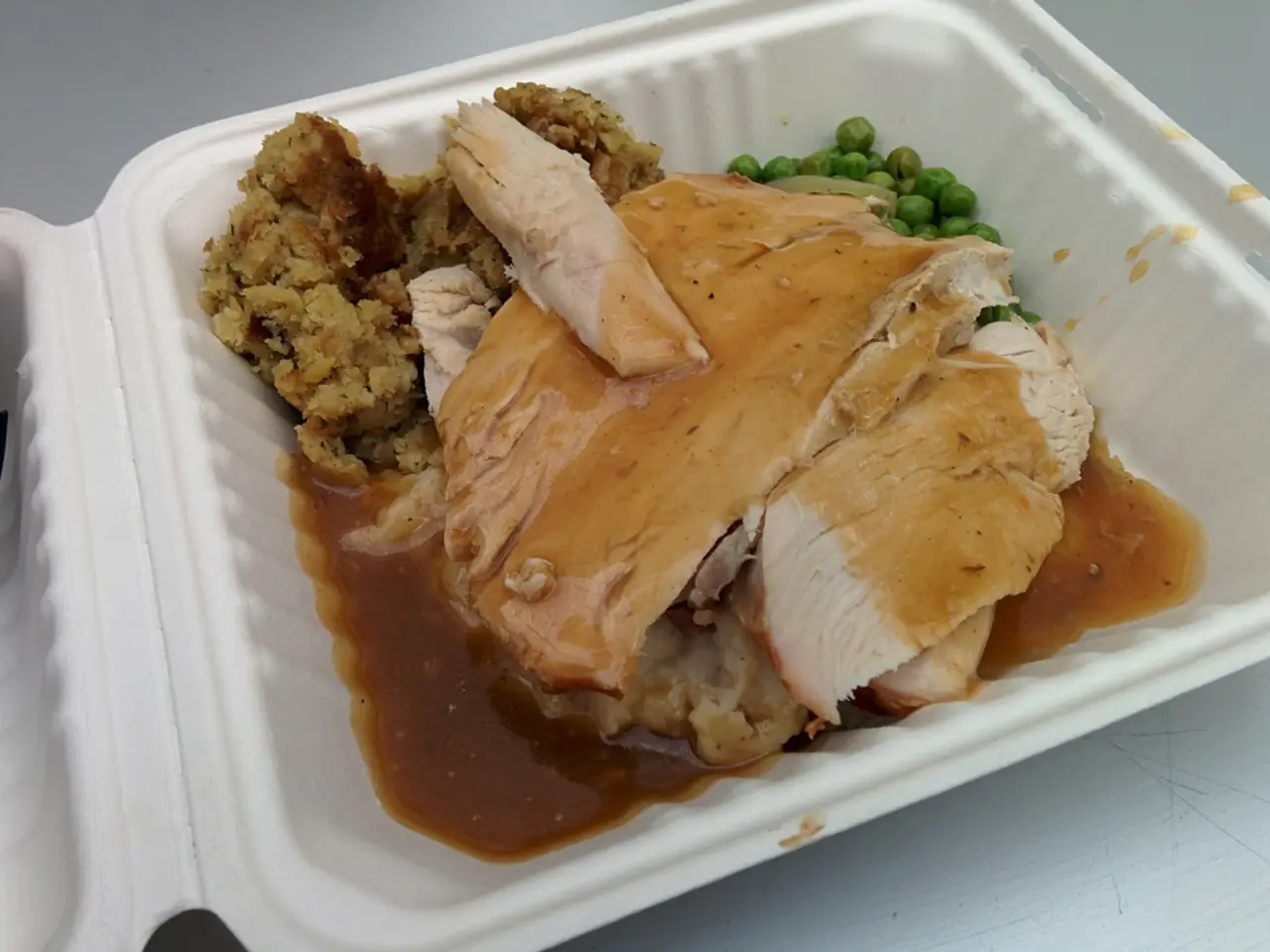Delivery Issues with Meal Kit Packaging
In the rapidly growing meal kit delivery industry, major players like Tyson, Amazon, The New York Times, and established meal kit services such as Blue Apron and Marley Spoon are increasingly focusing on reducing packaging waste. Here's a look at some of the current solutions and best practices being adopted by these companies to lessen their environmental impact.
Solutions
- Sustainable Packaging Materials: Companies such as Purple Carrot and BistroMD are making strides by using recyclable insulated boxes, nontoxic ice packs, and recyclable cooler liners made from post-consumer and post-industrial materials.
- Reduction of Single-Use Plastics: Some meal kit services are moving towards biodegradable or reusable packaging to minimize plastic waste. For example, modified atmosphere packaging can help reduce packaging needs by preventing spoilage.
- Biosensors and Smart Packaging: The integration of biosensors and smart packaging can monitor conditions during shipment, ensuring the quality of meals and reducing unnecessary packaging. Nanotechnology is also being explored for developing eco-friendly packaging materials that are more durable and environmentally friendly.
- Pre-Portioned Ingredients: Meal kits generally provide pre-portioned ingredients, which help reduce food waste compared to buying traditional grocery items.
Best Practices
- Recyclable and Biodegradable Materials: Encouraging the use of recyclable and biodegradable materials in packaging is essential to minimize landfill waste.
- Conscious Design: Opting for packaging designs that are minimal yet effective, reducing the overall material used, is another best practice.
- Consumer Education: Educating consumers on how to properly recycle packaging materials is crucial to maximize reusability.
- Supply Chain Optimization: Optimizing supply chains to reduce the need for extensive packaging by using more efficient logistics and shipping methods is an important step towards sustainability.
- Continuous Innovation: Staying updated with the latest packaging technologies and trends is key to continuously improving sustainability practices.
Some meal kit delivery services are taking unique approaches to reduce packaging waste. Potliquor, based in the San Francisco-Bay Area, uses wooden crates and mason jars for packaging, while Purple Carrot has made a change to include one entire head of garlic, loose in a bag, in their meal kits. FreshRealm's meal kit delivery service uses a reusable cold-insulating packaging vessel, and Potliquor charges a $25 deposit for the crates and jars that food is delivered in.
However, concerns amongst customers about the volume of waste, particularly packaging waste, remain. To address this, companies are implementing recycling programs and improving their packaging designs. For instance, Marley Spoon has a recycling program where customers are advised to recycle their boxes through their appropriate municipal channels. FreshRealm has reverse logistics to get the reusable shipping vessel back and sanitize it.
As the meal kit delivery industry continues to grow, with projections of a $5 billion increase over the next decade, it is crucial for companies to prioritize sustainability and adopt practices that minimize packaging waste. Former Chief Innovation Officer at Purple Carrot, Mark Bittman, acknowledged the challenge of reducing packaging waste and making it as eco-friendly as possible for meal-kit companies. Nevertheless, with continuous innovation and a focus on sustainability, the industry can contribute to a more sustainable food delivery industry.
- To reduce packaging waste in the food-and-drink sector, meal kit providers like Purple Carrot are experimenting with unique packaging solutions, such as using wooden crates and mason jars.
- To cater to the growing demand for a sustainable lifestyle, companies such as Marley Spoon are initiating recycling programs for their food-and-garden waste materials, like meal kit boxes, encouraging consumers to recycle their packaging appropriately.





